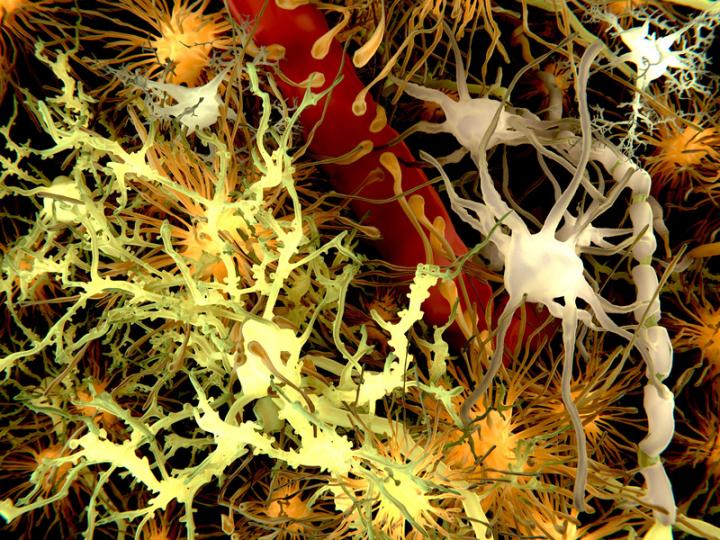Number of Dementia Cases Likely to Double by 2050 as Europe Ages, Report Says

Caption: Amyloid plaques are found in the brains of people with Down syndrome and Alzheimer's disease. Credit: Juan Gartner
The number of people with dementia in 37 countries in and near Europe is likely to double to 18.8 million by 2050, according to Alzheimer Europe.
That’s more than the 18 million predicted in previous forecasts.
The Luxembourg-based organization also lowered estimates of the current dementia count by a million people in the European Union, and by a million in 10 non-EU nations, including Israel, Switzerland, Turkey and the U.K.
The new count shows that 1.57% of the population in greater Europe has dementia. A 2008 study by the European Collaboration on Dementia put the figure at 1.75%.
The number of women with dementia in greater Europe (6.7 million) is more than double the number of men (3 million), according to the Alzheimer Europe study, issued Feb. 18.
The estimates are in line with the U.S. Framingham Heart Study and others showing a decline in the prevalence of dementia — the percentage of people living with the condition — but an increase in overall dementia numbers.
The World Health Organization, Alzheimer’s Disease International, and others have projected that dementia cases will triple worldwide to between 130 million and 150 million by 2050. This is in part because people are living longer, making them more likely to develop dementia as they age.
In 2012, the WHO projected that 18 million Europeans would have dementia by 2050. The organization has yet to update its projections.
“It is promising to see that healthier lifestyles, better education, and improved control of cardiovascular risk factors seem to have contributed to a reduction of the prevalence of dementia,” Jean Georges, executive director of Alzheimer Europe, said in a press release.
“However, our report also demonstrates that the number of people living with the condition is set to increase substantially in the years ahead, which will only place greater pressure on care and support services unless better ways of treating and preventing dementia are identified,” he said.
“If people with dementia, their families and carers are to receive the high-quality and person-centered care they need, governments must ensure their health and care systems are ready to meet this demand, and greater investments in research into the treatment and prevention of dementia are needed,” Georges said.
Alzheimer Europe said it decided to update its current dementia head count and 2050 projections because the most recent study it used to generate estimates was completed in 2013.
The organization analyzed the combined results of 16 dementia studies in 10 countries: Belgium, Bulgaria, Greece, Italy, Luxembourg, Portugal, Spain, Sweden, Turkey and the U.K. Most were done during the 2010s, but researchers conducted several in the past five years.
Among findings from some of the individual studies that were part of the Alzheimer Europe analysis: Some 36% of people over 80 in a study by researchers in Italy had developed dementia, and a study in Sweden found that 32% of people older than 85 had the condition.
Alzheimer Europe represents 39 organizations from 35 countries.






